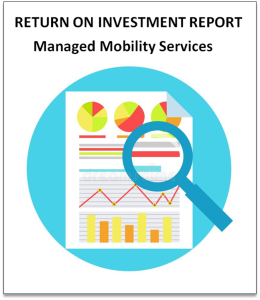
How Effective Mobile Strategy Consulting Can Help An Organization Improve Mobile Efficiency
With the always-on, localized, and ever-present nature of mobility, mobile strategy consulting is more important than ever. Connecting people, their devices, and data in efficient and intelligent ways is necessary to expand the opportunities for enterprise.
These trends—collectively known as mobile 2.0—are pushing enterprise past the realm of smartphones, tablets, and applications. The goal? A truly digital enterprise with mobility connecting all aspects seamlessly.
Though these might seem like lofty goals, with savvy mobile strategy consulting, these goals can—and are—becoming a reality.
Here’s how:
Connecting The Internet Of Things
Smarthomes are growing in popularity as more people adapt smart and adaptive technology solutions. It’s not uncommon for thermostats, lights, and entertainment systems to be controlled from a mobile source. It makes for an efficient yet comfortable home—one that learns based on your habits.
It’s the same with any enterprise. Take, for example, mobile technology in a hospital. Passive RFID can be used to track patients, mobile apps can be used to help navigate visitors, and real-time telemetry could be used to monitor patient health throughout the facility. All these functions are relatively easy to implement today.
But when it comes to connecting these systems so they can work together, there are bound to be numerous challenges and issues. Mobile strategy consulting is able to provide a blueprint and framework for such systems, while accounting for future developments.
Mobile-First Approach
Mobile strategy consulting needs to consider how common mobile devices have become. Any system or network that seeks to interconnect devices and functions must work smoothly and seamlessly.
The key challenge ahead of this comes from different expectations and demands from both information technology sectors and business. Getting both groups to approach challenges with the perspective of the other will go a long way towards addressing potential issues.
A mobile-first approach also has to simultaneously be holistic and all-encompassing while also providing clear case studies, tackling problems as they arise. Though it may be a challenging line to walk, focusing in too much on any individual issue can lead to troublesome one-off solutions.
Looking Ahead
There has been a tremendous surge in popularity in technologies such as augmented reality, virtual reality, and drone. Any enterprise looking to expand into mobile 2.0 should have some level of organizational preparedness for incorporating these technologies.
Tempting as it might be to use brand-new technologies, simply making use of them is not enough. They must be incorporated in meaningful and effective ways to support the goals of the enterprise.
A connected and digital enterprise is possible—investing in the future is necessary and requires thoughtful mobile strategy consulting in order to improve any organization’s efficiency. While it may seem like a daunting task, with the right outlook and approach, enterprises can embrace mobile 2.0 fully and completely.
Discover your ROI for managed mobility services: click here

